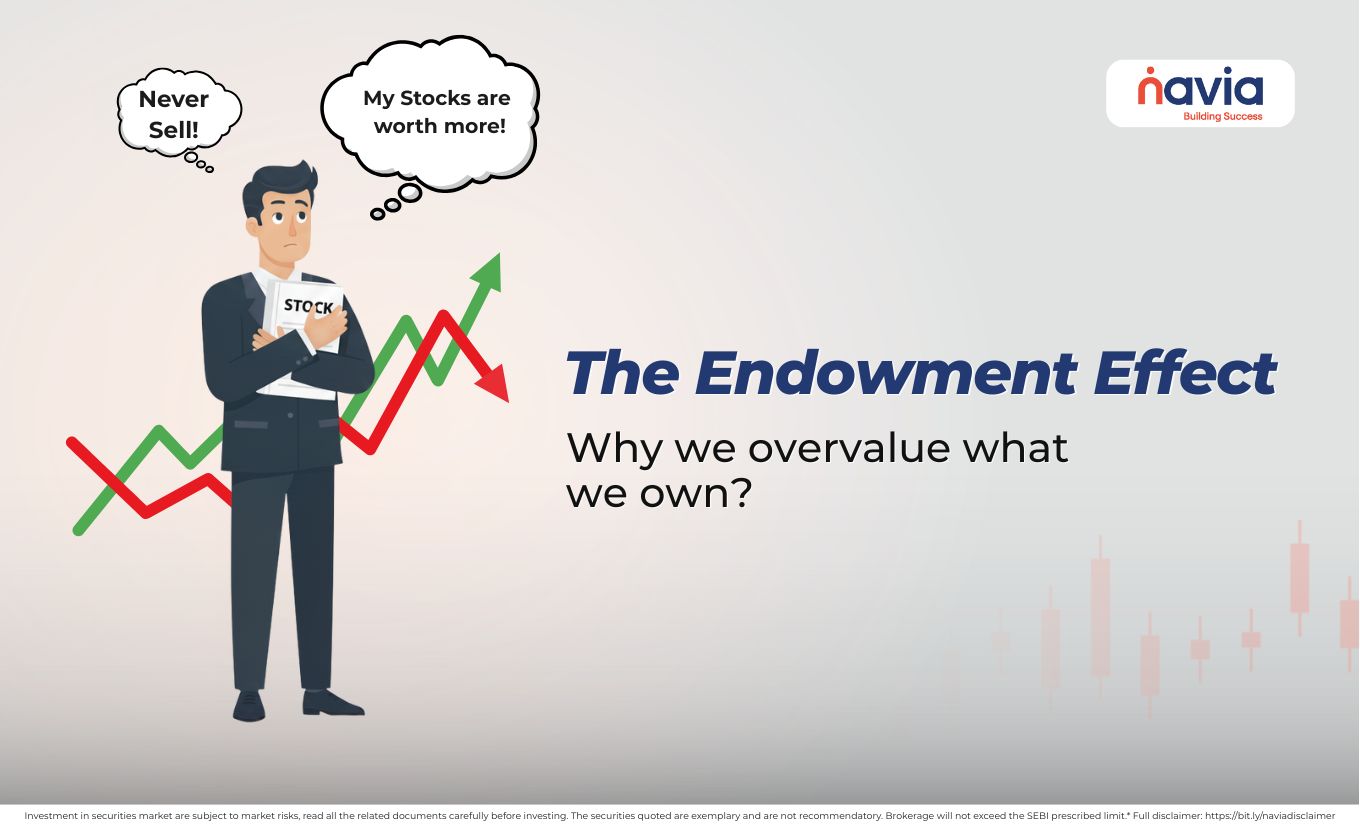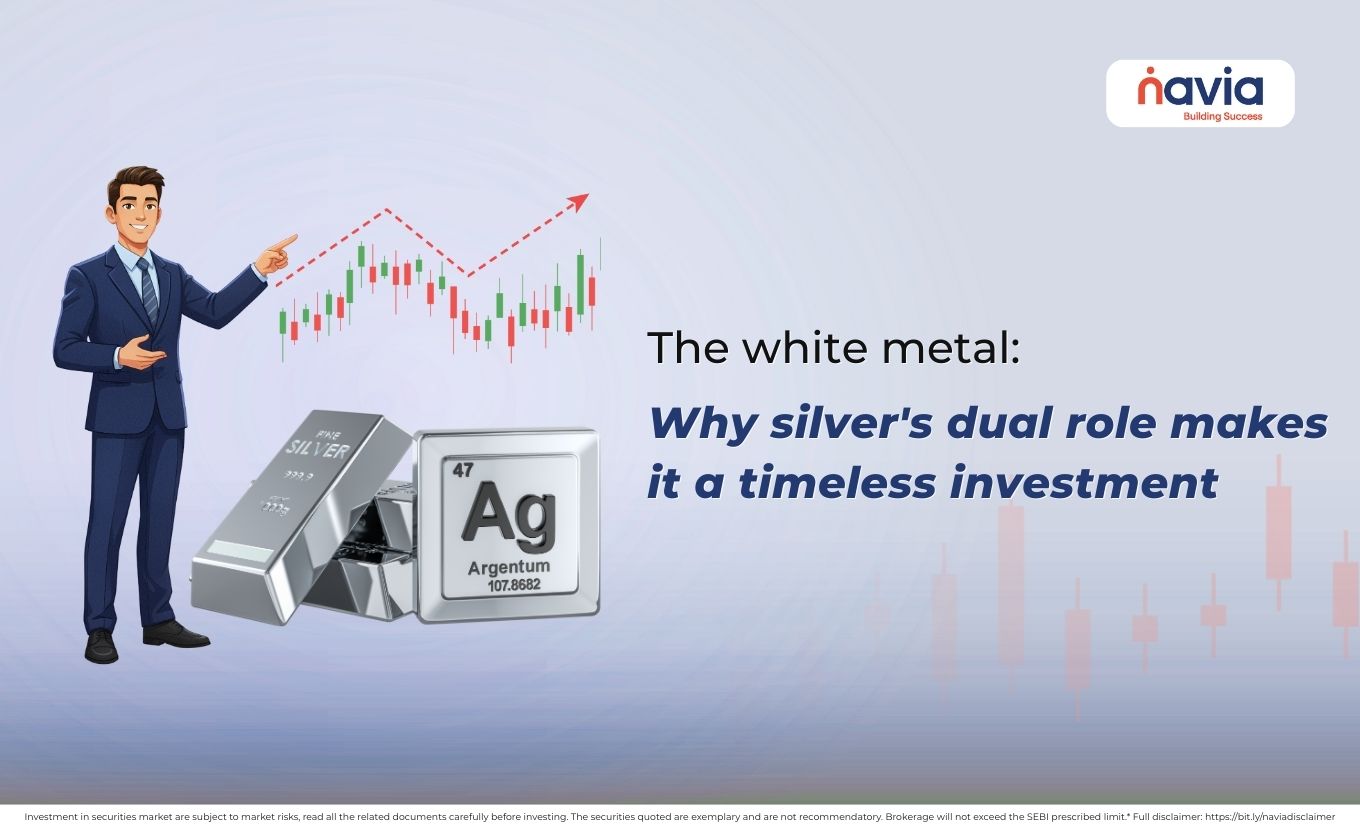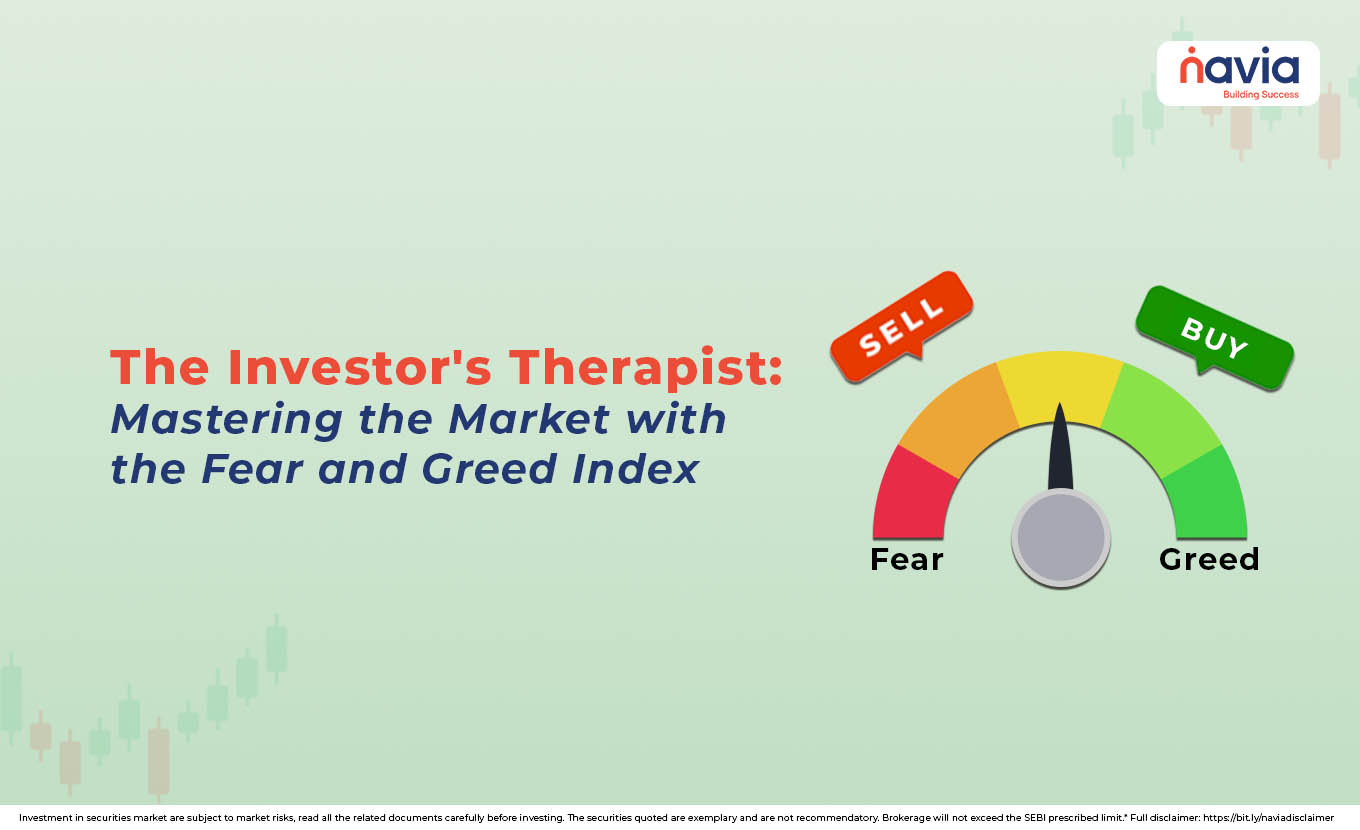The Endowment Effect: Why We Overvalue What We Own

- What is the Endowment Effect?
- Everyday Examples
- How the Endowment Effect Impacts Investing?
- Why We Fall for it?
- How to Overcome the Endowment Effect?
- Why it Matters for Navia Clients?
Have you ever noticed how selling something you own feels harder than buying it in the first place? Or how you might price your own house far higher than what buyers are willing to pay? This psychological bias is called the Endowment Effect—and it shows up in investing more often than we realize.
What is the Endowment Effect?
The Endowment Effect is our tendency to assign more value to things simply because we own them. Psychologists Daniel Kahneman and Richard Thaler famously demonstrated that people demand more money to give up an item they own than they’d be willing to pay to acquire it.
In simple terms: once we own something, it feels more valuable to us—even if nothing about it has changed.
Everyday Examples
➣ Asking too high a price when selling your car, because it’s your car.
➣ Holding onto clothes you never wear, because you bought them once.
➣ Refusing to sell collectibles, gadgets, or furniture at market value because they feel “worth more” to you.
How the Endowment Effect Impacts Investing?
For investors, this bias can be costly. Common scenarios include:
Overvaluing Owned Stocks
Investors hold onto shares long after fundamentals weaken, because they feel “special” or “worth more” just because they’re already in the portfolio.
Hesitating to Rebalance
Selling existing holdings feels harder than buying new ones—even when switching could improve long-term returns.
Overpricing Private Assets
Entrepreneurs often overvalue their businesses compared to external buyers, making exits difficult.
Avoiding Loss Realization
We hang on to poor investments because giving them up feels like a personal loss, not just a financial one.

Why We Fall for it?
⦿ Emotional ownership: What’s “mine” feels more valuable.
⦿ Fear of regret: Selling means admitting we might have been wrong.
⦿ Loss aversion: Letting go feels like losing, even if it’s the rational move.
How to Overcome the Endowment Effect?
🔸 Ask the outsider’s question: If I didn’t own this stock today, would I still buy it?
🔸 Use objective benchmarks: Compare holdings against indices and peers regularly.
🔸 Automate reviews: Tools like SIPs, rebalancing, and AI-driven alerts help reduce emotional decision-making.
🔸 Accept small mistakes: Recognizing a poor investment early often saves more than clinging to it later.
Why it Matters for Navia Clients?
At Navia, we understand that investing is not just about numbers—it’s about behavior. The Endowment Effect reminds us that the hardest decisions are often emotional, not logical. Our technology and behavioral insights are designed to help investors recognize and minimize biases while focusing on disciplined, long-term investing.
Key takeaway
Don’t let ownership blind you. Value your investments for what they are today, not for what they once meant to you.
Do You Find This Interesting?
DISCLAIMER: Investment in securities market are subject to market risks, read all the related documents carefully before investing. The securities quoted are exemplary and are not recommendatory. Full disclaimer: https://bit.ly/naviadisclaimer.






